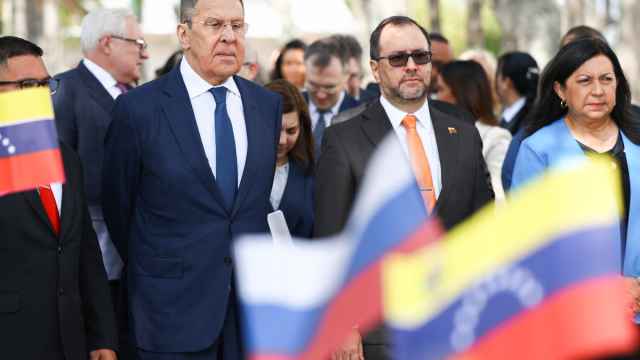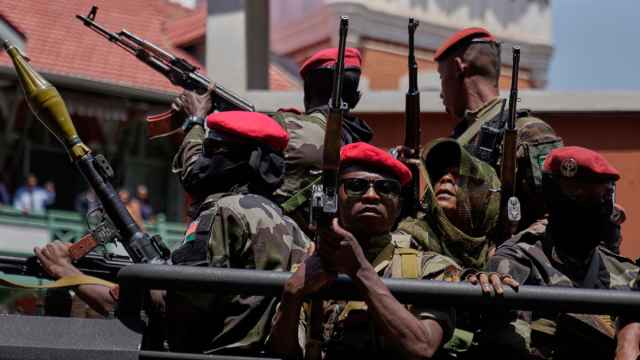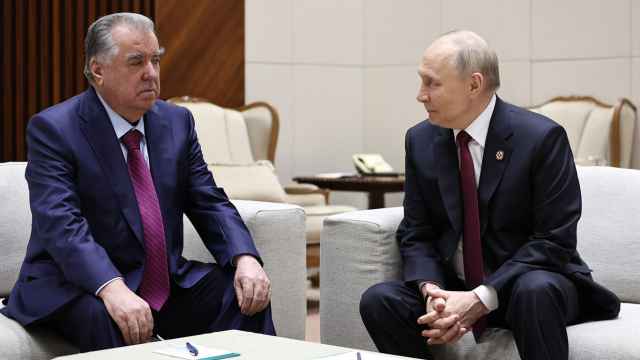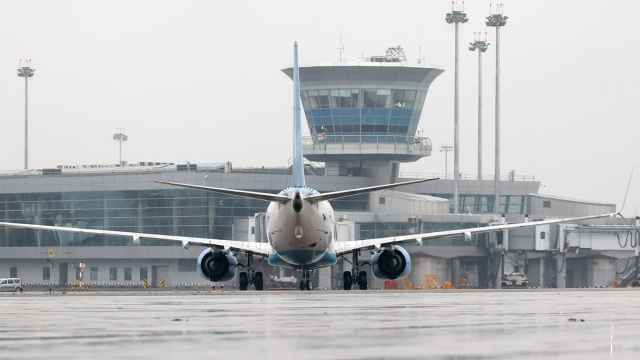The Federal Customs Service could have to change some of its internal regulations that bog down foreign trade, following Russia's accession to the WTO.
The service's regulations for determining the cost of imported goods are a far cry from WTO standards, said Mikhail Kozlov, customs services chief at Swiss-based international logistics company AsstrA. Cost issues "take a lot of effort" in customs clearance, he said.
He answered positively when asked whether the internal regulations will have to be changed in the event that Russia becomes a WTO member, which is expected in the middle of next year.
Dmitry Nekrasov, chief of the Federal Customs Service's department for customs clearance, said Wednesday that Russia complies with WTO requirements on the legislature level, but the service will work to bring its day-to-day operations up to the standards.
"The legislative base has been created," he said at a news conference. "We will work to improve our practice."
Kozlov said Russia will have to pursue the changes through the agency that operates the customs union that Russia formed with Belarus and Kazakhstan.
In other customs-clearance changes, Russia committed to cut the maximum customs clearance fee to 30,000 rubles ($970) from the current 100,000 rubles.
Kozlov said that would still be a concession to Russia on the part of the WTO. European Union countries, he said, don't charge anything for customs clearance.
The Federal Customs Service operates on state funding and shouldn't charge extra fees, he said.
Russia will reduce the import duty for cement in 2013, according to a document on obligations for commodity market access in the framework of Russia's accession to the World Trade Organization, Interfax reported. The current import duty on cement comes to 5 percent. Once Russia joins the WTO, the 5 percent rate will be maintained, but should be lowered to 3 percent in 2013. Import duties for granite, greenstone, basalt, sandstone and stone for construction will also be reduced from 5 percent to 3 percent in 2013.
In its agreement to join the World Trade Organization, Russia has also reserved the right to introduce a 5 percent import duty on metal ore and a number of nonferrous metal concentrate and ore imports. There is currently no duty on metal ore. Within three years of its accession, Russia could lower the duty by 3 percent. Russia assumes no obligation to lower the current 5 percent duty on calcined pyrite. The duty on zirconia, titanium, colombic and tantalum ore could be raised from 0 percent to 5 percent, without future reductions. The duty on zinc, tungsten and tin concentrate and ore could be raised from 0 percent to 5 percent, with a subsequent reduction to 3 percent within three years. Russia has also committed to lowering the duty on copper and lead ore to 3 percent over the course of three years. Russia does not plan to change its current 5 percent duty on nickel, cobalt, aluminum, manganese, chromium, vanadium ore and calcined molybdenic ore.
A Message from The Moscow Times:
Dear readers,
We are facing unprecedented challenges. Russia's Prosecutor General's Office has designated The Moscow Times as an "undesirable" organization, criminalizing our work and putting our staff at risk of prosecution. This follows our earlier unjust labeling as a "foreign agent."
These actions are direct attempts to silence independent journalism in Russia. The authorities claim our work "discredits the decisions of the Russian leadership." We see things differently: we strive to provide accurate, unbiased reporting on Russia.
We, the journalists of The Moscow Times, refuse to be silenced. But to continue our work, we need your help.
Your support, no matter how small, makes a world of difference. If you can, please support us monthly starting from just $2. It's quick to set up, and every contribution makes a significant impact.
By supporting The Moscow Times, you're defending open, independent journalism in the face of repression. Thank you for standing with us.
Remind me later.





